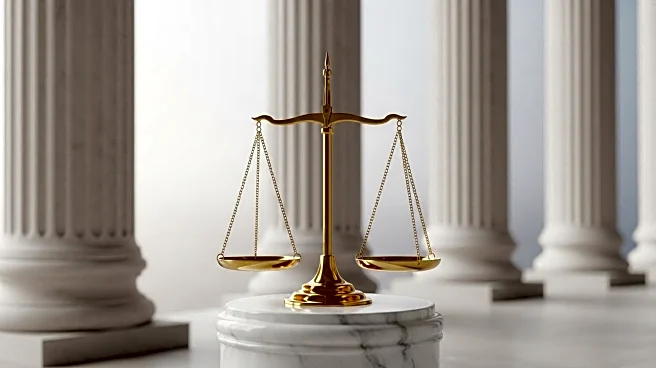What's Happening?
The Supreme Court has declined to hear Alex Jones' appeal against a $1.4 billion judgment related to his false claims about the Sandy Hook Elementary School shooting. Jones was found liable for defamation and emotional distress after spreading conspiracy theories that the massacre was staged. The families of the victims filed lawsuits in Connecticut and Texas, citing harassment and threats resulting from Jones' statements. The judgment includes $965 million in compensatory damages and $473 million in punitive damages. Jones and his company, Free Speech Systems, have filed for bankruptcy protection, and efforts to liquidate Infowars' assets are ongoing.
Why It's Important?
The Supreme Court's refusal to hear the appeal reinforces the accountability for spreading false and harmful conspiracy theories. It highlights the legal consequences of defamation and emotional distress, particularly in cases involving tragic events like Sandy Hook. The decision may serve as a deterrent to others who propagate similar false narratives. The financial implications for Alex Jones and Infowars are significant, potentially affecting their operations and influence in the media landscape.
What's Next?
The families of the Sandy Hook victims will continue to pursue the collection of the judgment through bankruptcy proceedings and asset liquidation. The legal battles faced by Jones may impact his ability to continue broadcasting and operating Infowars. The case may also influence future legal standards for defamation and emotional distress claims, setting a precedent for accountability in similar cases.
Beyond the Headlines
The case raises important questions about the limits of free speech and the responsibilities of media figures in disseminating information. It underscores the ethical considerations in reporting and the potential impact of misinformation on public discourse and victim families. The ruling may influence broader discussions on media accountability and the role of conspiracy theories in society.









